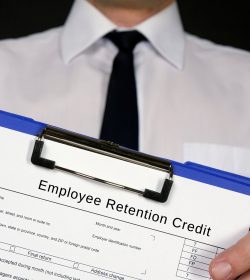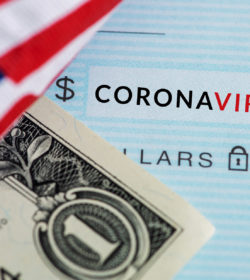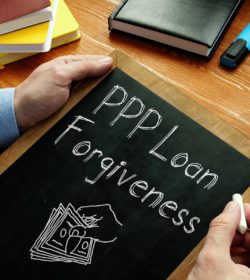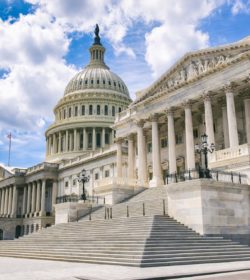Many of you have been asking when you should apply for PPP loan forgiveness. The following is our view on how to proceed, more details toward bottom if you are selling your practice.
Most of you are approaching the end of your 24-week covered period and starting to think about applying for PPP loan forgiveness. The deadline for submitting applications to your lenders is ten months from the end of your covered period, which puts most into the summer of 2021. If you miss that deadline, then the PPP loan is not forgivable and becomes a real loan that must be repaid with interest over the ensuing 24 months.
With the following recent law changes, 100% of your PPP loans ought to be forgivable:
- Extension of the covered period from 8 weeks to 24 weeks;
- Dropping the percentage of PPP loan proceeds that had to be spent on payroll costs from 75% to 60%; and
- Adding broad new safe harbors that effectively eliminate the possibility of a pro-rated reduction in loan forgiveness due to lower FTE headcounts and pay reductions for lower-paid employees.
Banks are rolling out their forgiveness applications, and about 100,000 businesses have applied. The banks review and approve the applications and submit them to the SBA for a final sign-off. As of October 1, the SBA has approved exactly zero of them, frustrating to say the least.
You should be moving forward with your forgiveness application if:
- Your PPP loan is over $150,000; or
- You are in the process of selling our practice.
The possibility remains that loans under $150,000 will be granted blanket forgiveness, so you might hold out for that a while longer since it will save hours of document preparation. Larger loans probably won’t get a blanket exemption, so you would start completing your bank’s forgiveness application and assembling the required documentation. We are available to assist with this process.
When it comes to a practice sale, the PPP loan is a complication. Since the forgiveness process may take up to five months, you will want to submit your application as soon as possible. It would be ideal if the SBA can forgive the loan before the closing date, but that just may not be feasible.
If the practice sale is to take place before PPP forgiveness can be obtained, your loan agreement may require your lender or the SBA consents to the sale transaction. If you sell the practice without getting this, then the forgiveness is put at risk and you may have committed a PPP loan default. This could trigger a payment penalty and immediate loan repayment. This has the potential to be a real mess.
Selling your practice? Then take notice of SBA PROCEDURAL NOTICE 5000-20057
Congress never intended for the CARES Act to interfere with the normal buying and selling of businesses. This potential problem is just one of the unintended consequences that comes with implementing a sweeping new lending program like PPP. In response to this major potential problem, on October 2nd the SBA issued Procedural Notice No. 5000-20057. This Notice provides a framework for PPP borrowers to sell their businesses (or part of them) and still qualify for PPP loan forgiveness.
The Notice states that, “Prior to the closing of any change of ownership transaction, the PPP borrower must notify the PPP Lender in writing of the contemplated transaction and provide the PPP Lender with a copy of the proposed agreements or other documents that would effectuate the transaction.” A “change of ownership” includes (1) the sale of at least 20% of the company’s ownership interests (e.g., shares of stock or LLC units), (2) the sale of at least 50% of the PPP borrower’s assets, or (3) the PPP Borrower is merged with another entity. Most practice transitions will fall under number 2, sale of at least 50% of the practice’s assets.
The Notice confirms that there are no restrictions on a change of ownership if the PPP loan has already been paid off. But, that’s rarely going to be the case. PPP borrowers want to get full loan forgiveness and don’t want to have to pay the loan off.
The Notice then offers exemptions from SBA pre-approval for the different types of change of ownership transactions. If your contemplated transaction is going to be one of the following, then you will have to follow the following procedures (most practice sales will fall under point #4 below):
- Sale of 50% or less of the PPP borrower’s stock or other ownership interest: No SBA consent required. (If the sale is at least 20%, then the PPP lender must still be notified and provided with copies of the transaction documents – and depending on your PPP loan agreement with your bank, bank consent may still be required. If the sale percentage is below 20%, then none of this is required).
- Sale of more than 50% of the PPP borrower’s stock or other ownership interest: SBA approval is not required if the PPP borrower completes a forgiveness application and sets up an escrow account with the PPP lender which is funded with enough money to repay the PPP loan. If the PPP loan is ultimately forgiven, then escrow money is returned to the borrower.
- Sale of less than 50% of the PPP borrower’s assets: This is not a change of ownership situation and does not require SBA approval. It probably does not require your lender’s consent either, but review your PPP loan agreement to be sure.
- Sale of 50% or more of the PPP borrower’s assets: SBA approval is not required where the company is selling 50% or more of its assets if the PPP borrower completes a forgiveness application and sets up an escrow account with the PPP lender which is funded with enough money to repay the PPP loan. If the PPP loan is ultimately forgiven, then escrow money is returned to the borrower. (Even though no SBA approval is required, as with 20% – 50% stock sales, lender approval is likely still required).
- Merger of the PPP borrower into another company: This is very unusual in professional practice transitions, but if you are merging your practice into another company and yours is going out of existence, then you can again avoid needing SBA approval if you compete a forgiveness application and set up an escrow account.
Unless these exceptions are met, then SBA approval is going to be required. The lender submits information to the SBA and the SBA may require the borrower to take additional risk mitigation measures. Basically, that will be a time-consuming nightmare that could delay the practice sale. It should be avoided at all costs. The escrow account is a good alternative. The best solution would be for Congress to get its act together and grant automatic loan forgiveness for most of the outstanding PPP loans.
Please let us know if you have any questions. Thanks.










